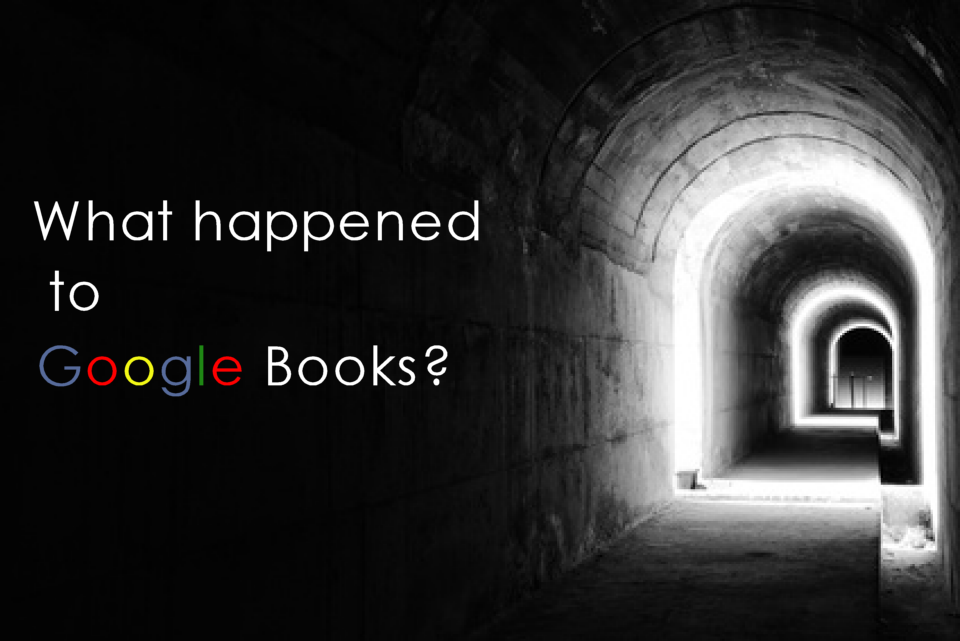One year ago yesterday, the US Supreme Court declined to hear an appeal by the Authors’ Guild to review a lower court decision in favor of Google, thus ending a legal challenge to Google Books that had dragged on for over a decade. Google Books is widely considered to be Google’s first big change-the-world project: scanning millions of print books from libraries to build an online digital library that anyone could use, without any fees or advertising. Projects that are perhaps more appealing to librarians, such as the HathiTrust or the Digital Public Library of America, have built on the Google Books concept. But now, one year after the big victory, Google Books seems oddly quiet.
- Challenge to Google Books is declined by Supreme Court (New York Times | Adam Liptak and Alexandra Alter) “As is their custom, the justices gave no reasons for declining to hear the case, Authors Guild v. Google Inc., No. 15-849. Last year, a unanimous three-judge panel of the United States Court of Appeals for the Second Circuit said that Google’s project was lawful and beneficial. ‘The purpose of the copying is highly transformative, the public display of text is limited and the revelations do not provide a significant market substitute for the protected aspects of the originals,’ Judge Pierre N. Leval, an authority on copyright law, wrote for the panel.”
- Be glad the Supreme Court ended the Google Books case (Fortune | Jeff John Roberts) “Information that was once locked up in dusty tomes at places like Harvard and Stanford can now be accessed by anyone with a keyboard and an Internet connection. This digital distribution has brought democratization of knowledge, and a wealth of research opportunities for readers and scholars. If the Authors Guild had prevailed, millions of books could have been closed once again, sealed off by a thicket of lawyers demanding permission to peek at any page.”
- Hail and farewell to the Google Books case (Publishers Weekly | James Grimmelmann) “The initial fear that Google would dominate publishing, crushing all beneath its robotic boots, was once at least plausible. But Google Play Books is now a punchline, as is the idea that the revenue generated from searches and snippets of out-of-print books was a treasure trove stolen from rightsholders. If the breathtaking ambition of the Google Books settlement was its undoing, however, such ambition also galvanized new thinking about how to carry forward the centuries of our cultural legacy locked away in print.”
- How Google Book search got lost (Backchannel | Scott Rosenberg) “In a sense, the company behaved like the Uber of intellectual property–a kind of read-sharing service–while expecting to be seen the way it saw itself, as a beneficent pantheon of wizards serving the entire human species. It was naive, and the stubborn opposition it aroused came as a shock. But Google took away a lesson that helped it immeasurably as it grew and gained power: Engineering is great, but it’s not the answer to all problems. Sometimes you have to play politics, too–consult stakeholders, line up allies, compromise with rivals.”
Articles from Ohio Web Library:
- Another page in the Google Books saga: Appeals court blesses mass digitization project as fair use. (Intellectual Property & Technology Law Journal, Feb.2016, p.20-23 | Lance Koonce)
- One title, hundreds of volumes, thousands of documents. (Library Resources & Technical Services, Jan.2015, p.24-32 | Suzanne M. Ward, Patricia A. Glasson and Randall F. Roeder)
- Checking in with Google Books, HathiTrust, and the DPLA. (Computers in Libraries, Nov.2013, p.4-9 | Naomi Eichenlaub)


